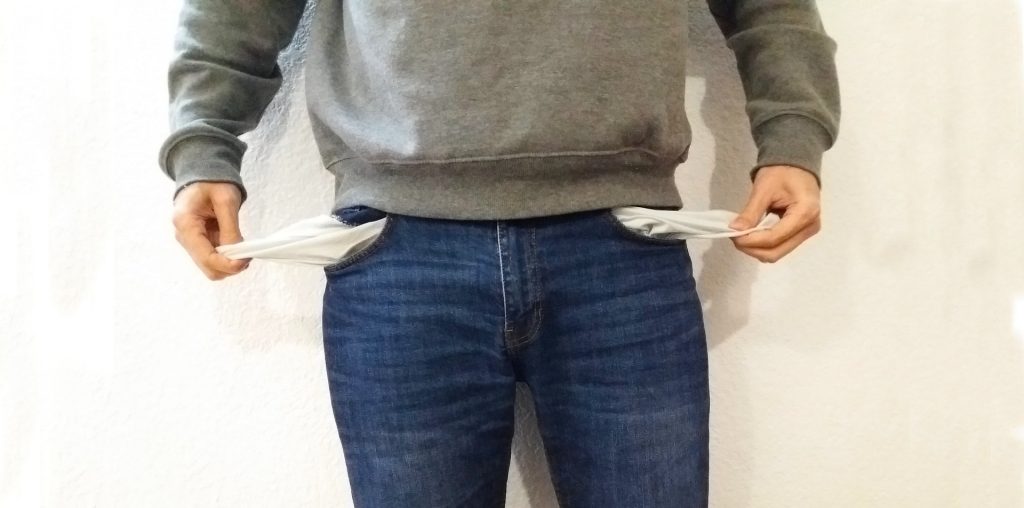Yes. But eligibility depends on state law and you may only collect unemployment benefits after you are released from prison. If you have completed your sentence or know your release date, below is what you need to know.
Tip: If you are over 65, you may apply for Social Security Disability Insurance or Supplemental Security Income while in prison. Benefits will begin when you leave.
Quick take: can you collect unemployment after being incarcerated in the US?
- Yes. All eligible American citizens including felons and convicts may receive unemployment benefits.
- The longest you may receive unemployment benefits is 26 weeks. (Massachusetts and Montana are the only two that provide longer benefits at 30 and 28 weeks)
- State law determines eligibility for unemployment benefits.
- In most states, to qualify for unemployment, you must hold a job for at least 30 to 90 days.
- If you are over 65, you may qualify for supplemental Security Income.
- Unemployment insurance fraud is a felony or misdemeanor depending on state law.
- Upon conviction for unemployment insurance fraud, you lose your eligibility to get unemployment benefits in future.
- The government discontinued PUA (Pandemic Unemployment Assistance).
- If the court sentenced you to more than 12 months in prison, you may have to reapply for unemployment when you complete your sentence.
- Upon release, you will receive “gate money,” but the amount depends on state law.
- You become ineligible for VA benefits if you commit crimes including treason, espionage, or criminal sabotage.
- If you know your release date, contact your case worker to apply for benefits.
Are ex-cons and felons eligible for unemployment benefits?
In the US, unemployment benefits are open to anyone, including convicts and felons. What may disqualify you from receiving government benefits depends on state law. Generally, some reasons why the government may have denied you benefits include:
- You are not actively looking for a job. The government may cut off federal unemployment benefits after 26 weeks or if you do not actively look for work. If you were affected by the recent pause in aid, you may file another claim.
- False information. If you submit false or inaccurate information on your claim, the government will disqualify you from receiving benefits.
- Employment. Under the CARES Act, self-employed persons qualify for federal unemployment benefits if their business has to close down.
- Terminated for misconduct. In some states, you are only eligible for unemployment if you lost your job through no fault of your own. That means if you intentionally neglected your duties, used drugs, and so on resulting in termination, you may be ineligible for unemployment.
- Quit without good cause. Each state defines “a good cause to quit,” for example, if you quit your job to go get married, you may be ineligible for unemployment.
You need a job to claim unemployment. Why?
In some states, you must hold a job for at least 30 to 90 days before becoming eligible for unemployment benefits. So, for example, if you had a job before the pandemic or lockdown hit and held that job for at least three months -depending on state law- you may be eligible for unemployment benefits.
In short, you must be employed or actively seeking a job to qualify for unemployment.
You may also be eligible for PUA (Pandemic Unemployment Benefits), but the government discontinued that program
What are the eligibility requirements to receive weekly unemployment benefits?
Unemployment eligibility requirements vary depending on state law. For example, in North Carolina, you qualify for unemployment if:
- You are unemployed
- You actively work each week you collect unemployment benefits.
- Earn minimum wage.
- Work in the state for at least 12 months.
If you are in Florida, recent changes to state unemployment benefits eligibility include:
- You must have lost your job through no fault of your own.
- You must be partially or ‘totally unemployed.’
- The individual must be actively looking, available for work, and able to work.
- You must have worked in the state for at least 18 months and earned at least $3400 before taxes.
Note. You cannot collect unemployment for time spent in jail or prison.
Tip: the best way to find out if you qualify for unemployment is to contact your state’s unemployment offices. Find your state’s unemployment insurance office and numbers here.
Do prisoners in the US get any money when released?

Yes. In most states, the minimum you will receive as “gate money” when you leave prison is $50. However, in California, you will receive $200.
Why do prisoners get money when released?
In theory, you receive gate money to cover expenses, including transportation, food, and housing. But the amount is often too little to cover the mentioned expenses.
What happens after you get out of prison? Do convicts get social security?
If you are above 65 and have worked or paid into social security for enough years, you may qualify for benefits including:
- Disability benefits
- Supplemental Security Income benefits.
- Social Security Retirement benefit.
Can you claim benefits while in prison?
According to the Social Security Administration, No. You cannot collect benefits while in prison. Because of that, Social Security Disability Insurance (SSDI), and Supplemental Security Income (SSI), are only payable after release from prison. In other words, you will not receive any benefits while in prison or for the time spent in prison or jail.
What to remember:
- You will have to reapply for benefits if your sentence is longer than 12 months.
- You may apply for benefits while in prison, but you will only receive benefits post-release.
- Social security benefits for your spouse or children will continue as long as they remain eligible.
- You qualify for Supplemental Income benefits if you are above 65.
- If you know your release date, you may ask your caseworker to start the application process for SSI benefits.
- Felons and convicts qualify for unemployment benefits.
Can a felon get VA benefits and unemployment?
Yes. If you were in the military before incarceration, you are eligible for:
- Unemployment (post release)
- Disability compensation
- Veterans’ readiness and employment
- Burial
- Home loans
- Healthcare
- Pension.
If you are convicted of a felony and serve at least 60 days in jail, the state will reduce your VA disability benefits. However, the government does not reduce benefits if you are under community control, reside in a halfway house, or participate in work release programs.
It is also worth noting that a conviction does not jeopardize your federal pension, and you may receive some military benefits while in prison.
If you commit criminal disloyalty such as sabotage, treason, or espionage, the government may discontinue your benefits.
How do I file benefits applications while in prison?
As mentioned, if you know your release date, you may ask your caseworker to help you apply for SSI benefits. Note. The institution you are in may have a prerelease agreement with local social security offices.
You may also contact Social Security Administration via 1-800-772-1213.
How do you apply for unemployment in the US if you are a felon?
Unemployment application procedures in the US depend on state law. But generally, the process involves:
Determine if you qualify for unemployment

As mentioned, convicts and felons qualify for unemployment benefits if they meet state eligibility requirements. The easiest way to determine if you are eligible is to contact your state’s unemployment office and file a claim. For example, if you are in California, you may create a profile then file a benefits claim here.
You will need your name, date of birth, social security number, and EDD Customer Account number.
Note that your former employer may challenge your claim in some states. If that happens, the government may deny you benefits. Also, you must be actively looking for a job or earn minimum wage as an employee for a set period, as explained above.
You need proof of work
As mentioned, to be eligible for unemployment benefits, you must have held a job for a set period. Because of that, state law may require you to include the name, address, and contact information of a previous employer and your earning information. If you had multiple jobs, you must list all of them.
Remember, if the information you provide is false or inaccurate, the state will deny you benefits.
File a claim online or at your state’s unemployment offices
If you meet eligibility requirements, you may file a claim on your state unemployment agency website or in person.
How much unemployment will my weekly unemployment be?
How much you receive depends on state law. For example, if you are in Mississippi and have worked at least two quarters of your base period, earned at least $780 in your base period, and have earned 40 times your weekly benefit amount in your base period. You may receive $235 in weekly benefits.
How long can you collect unemployment in the US?
The longest you can be on unemployment in the US is 26 weeks, but that depends on state law. Meaning in some states, the collection period is shorter. Remember, the purpose of unemployment benefits is to help citizens who have lost their jobs by temporarily replacing their income.
That raises the question:
What are the penalties for Unemployment Insurance Fraud?
Unemployment Insurance Fraud happens when an individual knowingly or intentionally makes false statements, submit false information, or collects benefits without reporting wages or income.
Using someone else’s identity to collect unemployment benefits is also a crime.
The penalty for unemployment insurance fraud depends on state law. For example, in California under chapter 10 section 2101, you are guilty of Unemployment Insurance Fraud if you quote:
“It is a violation of this chapter to willfully make a false statement or representation, to knowingly fail to disclose a material fact, or to use a false name, false social security number, or other false identification to obtain, increase, reduce, or defeat any benefit or payment, whether for the maker or any other person, under any of the following statutes administered by the department:(1) The provisions of this division. (2) The provisions of any unemployment insurance law of the federal government.(3) The provisions of any training allowance law of the federal government.(4) The provisions of any trade readjustment allowance law of the federal government. (5) The provisions of any other allowance law of the federal government.”
In the state, unemployment fraud is a wobbler offense. Meaning it is either a felony or misdemeanor.
Remember, the amount you fraudulently collect determines the crime. In other words, the higher the amount, the higher the penalty.
For misdemeanor unemployment fraud in California, the penalty is a $20000 fine, informal summary probation, and not more than one year in jail. For a felony offense, the penalty is up to three years in prison, a $20000 fine, and formal probation.
What to remember:
- In states including Georgia, you lose future unemployment benefits upon conviction for Unemployment insurance fraud.
- You are liable to pay the amount of improperly paid benefits plus penalties and interest. The state may also add a 15% penalty if convicted.
- Penalties are not waivable in some states.
In short. If you meet your state’s unemployment benefits requirements, you qualify for benefits even if you have a criminal record.
